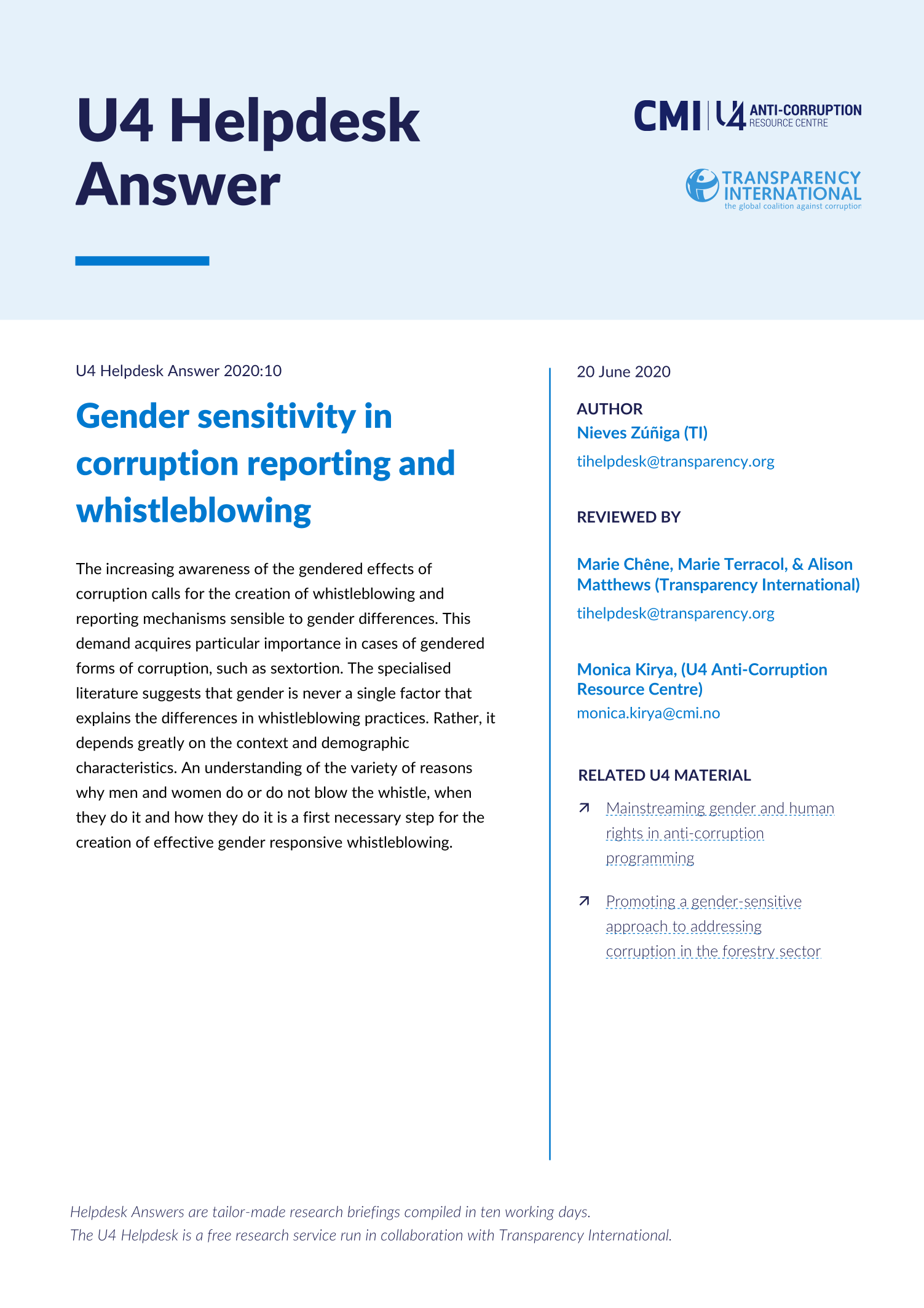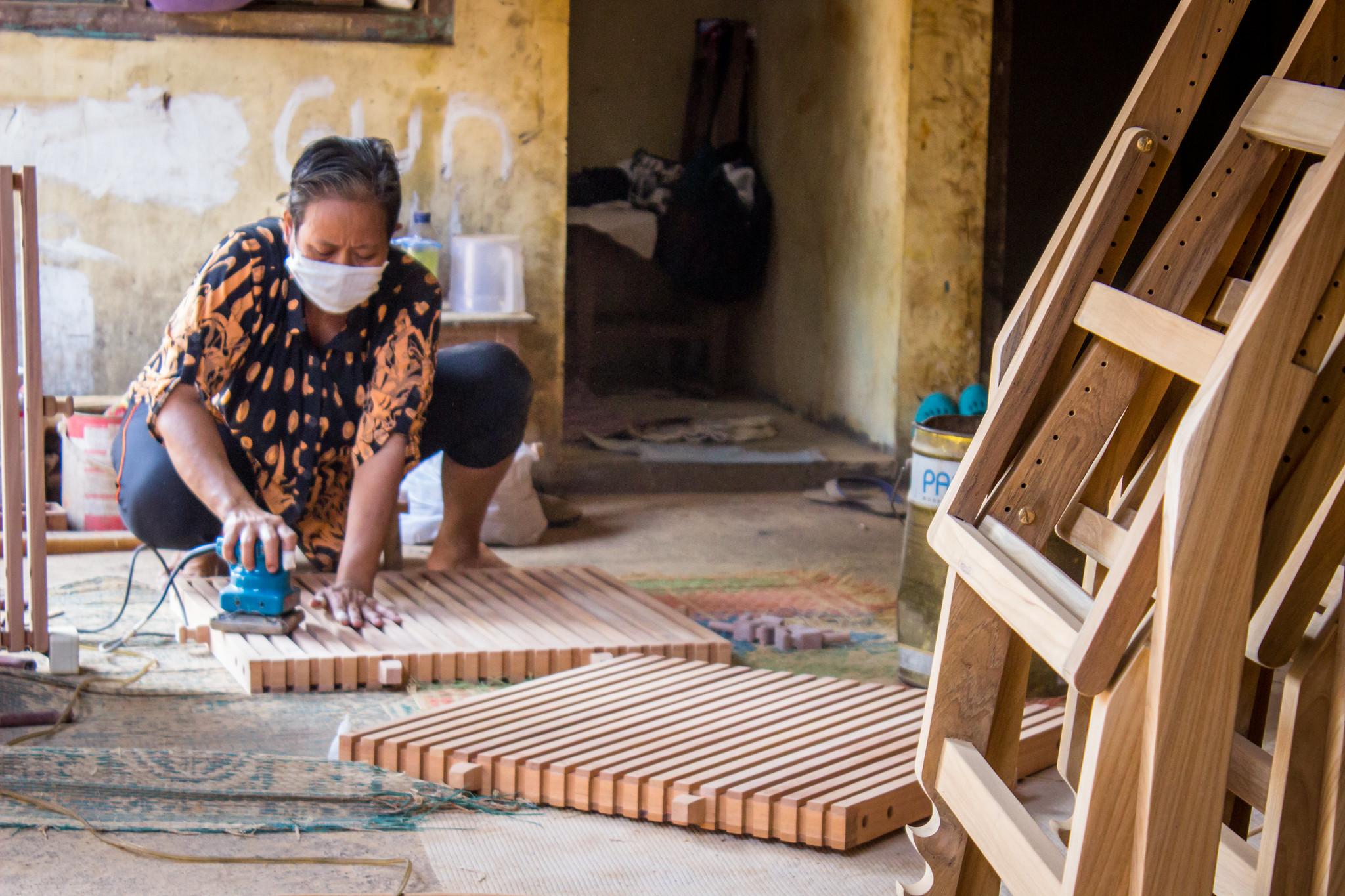Main points
- Gender differences in reporting corruption are highly influenced by contextual, social and demographic characteristics.
- Women are particularly influenced by peers, friends and family reactions to whistleblowing.
- Confidentiality and anti-retaliation provisions are prioritised by women in their decision to blow the whistle.



